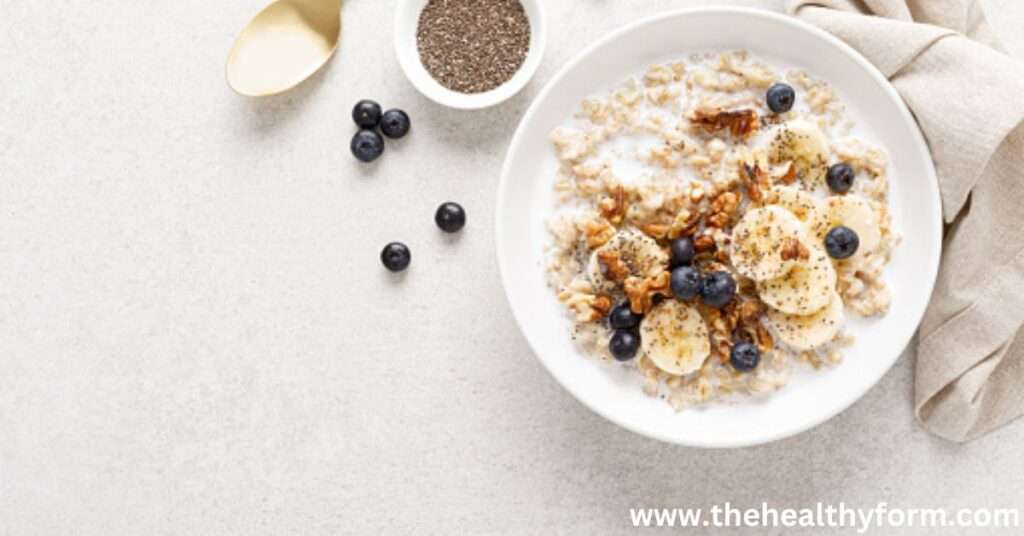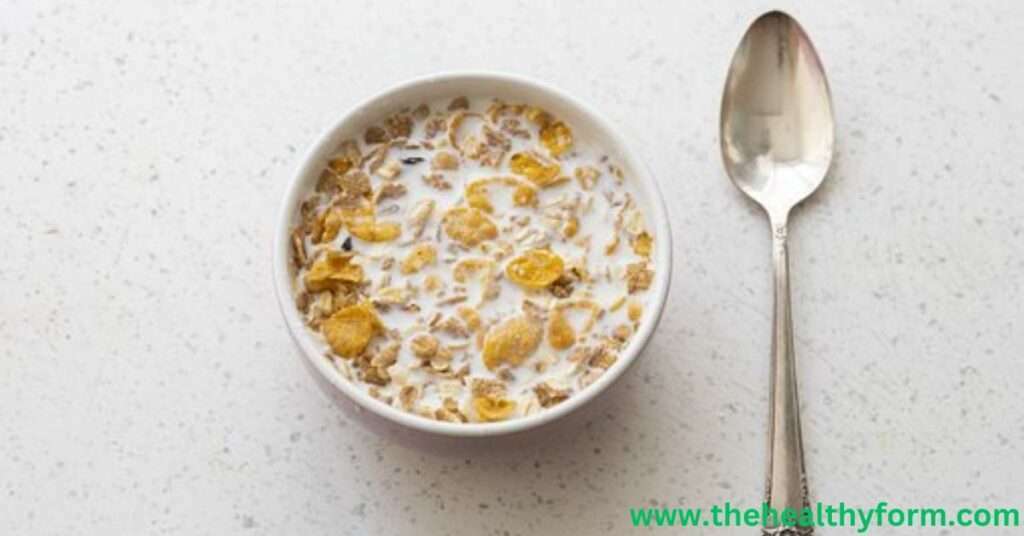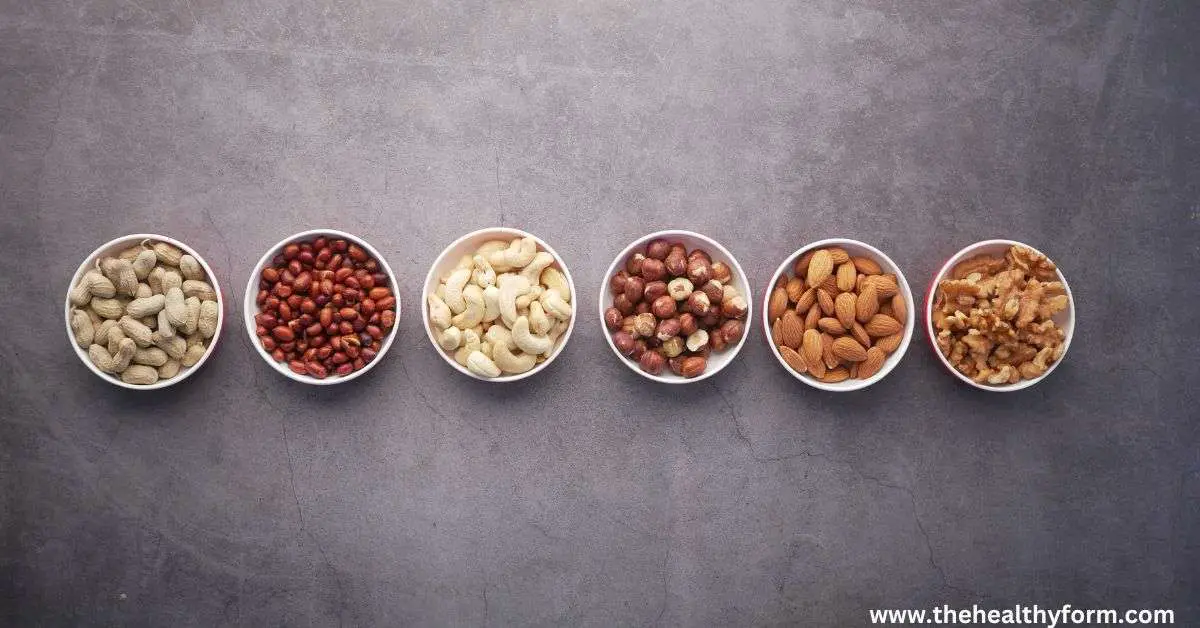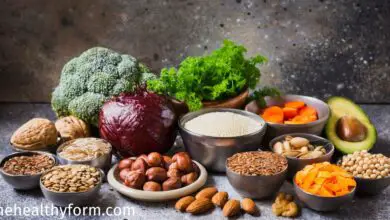Discover The Nutrition Facts for Eggs, Yogurt, Cereals, and Milk
Discover the nutrition facts for eggs, yogurt, cereals, and milk in this comprehensive guide. Good morning! Ready to start your day? Of course, you can’t go wrong with some caffeine—but you’ll need a little more than that to get going. That’s why a good breakfast is essential for powering up your day.
But what constitutes a good breakfast? It’s important to pick something tasty and satisfying, but we also want our breakfast to be nourishing and full of the nutrients we need for optimal health. So, understanding the nutrition facts for common breakfast foods is key to ensuring you’re getting the most out of your morning meal.
Today, we’re here to help decode some of your favorite breakfast options, breaking down their nutritional content so you can better understand what’s going into your body with each bite of yogurt or bowl of cereal. Read on for more!

Importance Of Breakfast
Breakfast truly is the most important meal of the day. Studies have shown that people who eat breakfast tend to eat healthier overall and consume fewer calories, leading to a lower risk of obesity. Eating breakfast helps boost energy levels, too, leaving you ready to conquer your day!
The key is to make sure your breakfast is packed with nutrition. Here’s a look at some staple foods you can include for a healthy breakfast and their nutritional value:
- Eggs: Loaded with protein, eggs are one of the most filling, nutrient-rich foods you can eat. They also contain vitamin B12 and selenium, which help fuel your metabolism and keep the immune system strong.
- Yogurt: Yogurt is rich in calcium and protein, helping prevent bone loss while giving you steady energy throughout the day. Plus, it contains probiotics, which help build up healthy bacteria in your gut for better digestion.
- Cereal: Cereal grains like oats contain fiber, B vitamins, and antioxidant compounds that enhance heart health. Whole grain cereal provides complex carbohydrates for sustained energy levels and minerals like zinc for immunity support.
- Milk: Milk is an excellent source of calcium, essential for strong bones and teeth. It also contains Vitamin D, which helps absorb calcium while promoting good health.
With such a powerhouse of nutrients in these items, there’s no excuse not to have a nutritious breakfast every morning!
Nutrition Facts for Eggs and Serving Suggestions
Eggs are powerhouses of nutrition, packed with vitamins and minerals. A large egg contains 6g of protein and only 72 calories, making it an excellent part of a healthy breakfast. Eggs also contain choline, an essential nutrient for brain development and maintenance. Eating just one egg daily has been associated with higher brain function, better cognition, and even improved moods.
Serving suggestions include scrambled eggs with vegetables, omelets with cheese and herbs, boiled eggs with toast or bagels, or fried eggs to top off your favorite vegetable dish. If you’re looking for a creative way to get your breakfast fix in a hurry, try making an egg muffin: crack two eggs into a cupcake tin, add the ingredients of your choice (cheese, chopped vegetables—anything goes!), season generously with salt and pepper and bake at 375°F for 15-20 minutes. Enjoy!

Nutrition Facts for Yogurt & Serving Suggestions
When considering breakfast options, yogurt should make it to your list. Not only is it tasty, but it also offers many great health benefits. So, let’s take a look at some of the nutrition facts.
Yogurt typically contains between 4-8 grams of protein and around 11-15 grams of carbohydrates, depending on the type and brand you buy. It’s also packed with calcium for stronger bones and probiotics for better digestion.
If you’re looking to get creative with your next yogurt bowl, here are some serving suggestions:
- Start with plain Greek yogurt mixed with fresh fruit and granola for a bit of crunch
- Add some chia or flaxseeds for extra nutrition and fiber
- Sprinkle some nuts like almonds or walnuts
- Drizzle with honey as a natural sweetener
- Give it an extra boost with high-protein powder like whey or plant-based powders
Whichever way you serve it up, yogurt can easily power up your breakfast.

Nutrition Facts for Cereals (Cold & Hot) & Serving Suggestions
Cereals can be a great way to start your day, whether you prefer something sweet or savory. Here are the nutrition facts for both cold and hot cereals, along with a few tasty suggestions to make your breakfast even more nutritious:
Cold Cereals
Cold cereals are convenient, easy to eat, and come in various flavors. Your typical bowl of cold cereal will provide you with some essential vitamins and minerals, such as thiamin, riboflavin, niacin, and vitamins B6 & E.
Add nuts or seeds (such as almonds or chia) to your cereal for additional nutrition. This will add some protein and healthy fats to your meal.
Hot Cereals
Hot cereals like oatmeal are also packed with essential vitamins and minerals such as calcium, iron, zinc, magnesium, and beta-glucan. You can top them off with some fresh fruit for added sweetness or nuts for extra protein.
A combination of quinoa flakes mixed with proteins from nuts, seeds, and dairy (such as yogurt) can make for a delicious hot cereal alternative that is high in fiber and protein. A bonus? This type of cereal is also gluten-free!

Nutrition Facts for Milk & Serving Suggestions
Did you know milk is a powerhouse source of vitamins, minerals, and health benefits? For example, one cup of low-fat or fat-free milk contains 8 grams of high-quality protein and 300 milligrams of calcium, which helps build strong bones. Plus, most varieties are fortified with Vitamin D to help promote healthy teeth and bones.
Not sure how to fit milk into your breakfast routine? Here are some ideas:
- Make a smoothie by blending frozen fruit with almond or soy milk for a creamy and delicious start to your day.
- Use as a base for overnight oats: mix oats with cinnamon, chia seeds, chopped nuts, and your favorite milk before storing them in the fridge.
- Add it to your morning cereal: choose low-fat or fat-free varieties for more protein and fewer calories.
- Stir into hot oatmeal: Combine oats and water with a splash of milk for added richness.
- Whip up savory omelets or scrambles: beat together eggs, veggies, herbs, and cheese before cooking in creamy whole milk.
Nutritious, delicious, and versatile are just some reasons why adding milk to your breakfast can power up your day!

Tips for Creating a Balanced Breakfast
If you want to create a balanced breakfast that will give you enough energy to power through your day, here are some tips:
- Make sure you get a combination of protein, carbs, and fat. A good mix of these three macronutrients will provide sustained energy, help keep you full longer, and ensure your body has the nutrients it needs.
- Choose nutrient-dense options. Plenty of healthy breakfast options provide a great balance of nutrition in every bite. Eggs are an excellent source of protein and essential vitamins and minerals like choline and Vitamin D; Greek yogurt contains probiotics and plenty of protein; overnight oats or whole grain cereals can provide carbs for energy; and milk is rich in Vitamin D, calcium, and potassium.
- Don’t forget your fruits and veggies! Add some fresh fruit slices, like banana or applesauce, or add veggies to your meal with spinach in an omelet or smoothie. Not only are they tasty but they also pack a nutritional punch!
Following these tips for creating a balanced breakfast plate each morning will give you the fuel to power through your day!
FAQs About Breakfast and Nutrition
If you’re like many people, you have some questions about nutrition and breakfast. Here’s a quick run-down of the most common questions:
How Much Protein Should I Eat For Breakfast?
The amount of protein you should eat for breakfast will vary depending on your goals and dietary needs. Generally speaking, a high-protein breakfast will keep you full longer and help maintain muscle mass. The USDA recommends that adults get 10 – 35% of their daily calories from protein.
Are Cereals Healthy?
When choosing cereal, opt for whole grain or bran varieties for the most nutritional value and fiber content. Check the nutritional labels to make sure the cereal is low in sugar and fat and high in fiber to ensure it is healthy. Additionally, avoid cereals with artificial flavorings, colors, or preservatives.
Is Yogurt Good for You?
Yogurt can be a nutritious part of a healthy breakfast because it contains protein, calcium, Vitamin B12 and probiotics (the beneficial bacteria that aid digestive health). Choose plain yogurt with no added sugar and mix fresh fruit or nuts to add natural sweetness. Greek yogurt is more protein than traditional yogurt, making it an ideal choice for breakfast.
Are Eggs Good For You?
Eggs are nutrient-rich foods that are an excellent source of protein and essential vitamins such as Vitamin B12 and Vitamin A. When cooked without added fat or oil (such as boiled, scrambled or poached), eggs can provide an incredibly healthy meal option. Additionally, egg yolks contain beneficial fatty acids like DHA, which are important for brain health.
Is Milk Healthy?
Calcium, protein, and vitamin D—all essential nutrients for the upkeep of strong bones and teeth—can be found in milk and are potentially nutrient-rich sources. The inability of certain people to adequately digest milk due to lactose intolerance might cause intestinal problems. Furthermore, it has been shown in certain research that excessive milk intake may raise the chance of developing certain illnesses, including cardiovascular disease, prostate cancer, and acne. When deciding if milk is a healthy option, it is crucial to practice moderation as with all meals and consider unique dietary requirements and preferences.
Conclusion
A good breakfast is essential whether you’re trying to build muscle, keep your heart healthy, lose weight, or want something to eat before the day begins. By understanding the nutritional profiles of eggs, yogurt, cereals and milk, you can power up your morning meal and make sure you start the day on the right foot.
Remember, not all foods are created equal when it comes to breakfast. Choosing the right breakfast options is important based on your fitness goals and nutritional needs. Doing so will ensure you’re properly fueled to tackle the day and stay energized.





